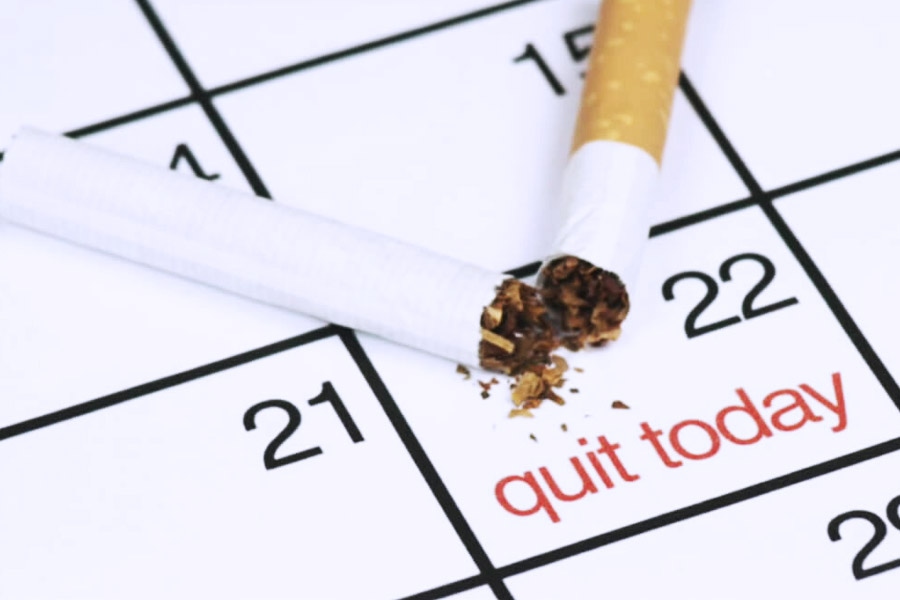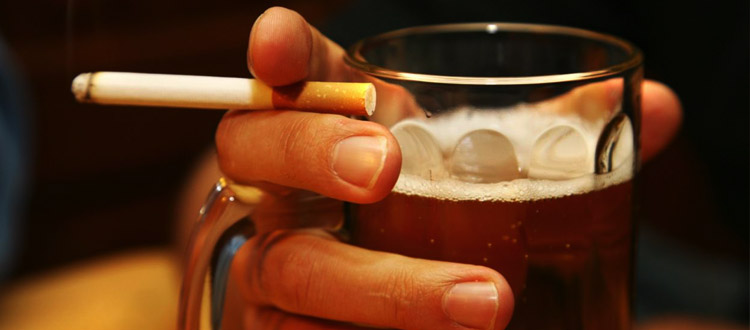It’s no secret that alcohol and smoking are bad for your health. But did you know that limiting your intake of these substances can have some pretty significant health benefits? For starters, cutting back on alcohol can help reduce your risk of developing cancer. Alcohol is a known carcinogen, and even moderate drinking has been linked to an increased risk of cancer of the mouth, throat, esophagus, and liver. If you smoke, quitting can also dramatically reduce your cancer risk. In fact, quitting smoking is one of the best things you can do for your health, period.
In addition to reducing your risk of cancer, limiting your alcohol intake can also help improve your cardiovascular health. Drinking too much alcohol can raise your blood pressure and increase your risk of developing heart disease. It can also make you more likely to have a stroke. If you smoke, quitting smoking will also lower your risk of developing heart disease.
Think about this: Drinking and smoking can take a toll on your relationships, as well as your health. If you’re trying to quit, your friends and family can be a great source of support. They may even be inspired to make some changes themselves!
Tips on how to reduce your alcohol consumption.
1. Set a limit for yourself and stick to it. It can be difficult to know when to stop drinking alcohol. Think about why you want to drink less alcohol. Is it for your health? To save money? To improve your relationships? Once you know your reasons, you can set a goal that's right for you.
2. Alternate between alcoholic and non-alcoholic drinks. If you're drinking alcohol, be sure to have a non-alcoholic drink in between alcoholic ones. This will help you pace yourself and prevent you from becoming too intoxicated. It's also a good way to stay hydrated, since alcohol can dehydrate you.
3. Avoid drinking triggers, such as specific locations or situations. If there are certain places where you usually drink or where you feel like drinking, try to avoid them. It may also be helpful to avoid situations where drinking is the norm, such as parties or bars. Instead, find new places to socialize and new activities to do. Make a plan on what you will do if you are faced with a drinking trigger. If you know that you will be in a situation where drinking is the norm, have a plan for how you will stay sober. For example, you could tell your friends ahead of time that you are going to be the designated driver.
4. Keep track of how much you’re drinking with a journal or app. You may be surprised at how easy it is to forget how many drinks you’ve had or what kind of impact they’ve had on your body. To help with this, consider using a journal or app to track your drinks. This can give you a better idea of your patterns and help you see where you may need to cut back. There are many different journaling and tracking apps available, so find one that works best for you.
5. Seek out support from friends and family. If you're struggling to cut back on your alcohol consumption, tell your friends and family. They can provide support and understanding as you make changes to your drinking habits. Additionally, they can hold you accountable for your choices, which can help you stay on track. If you don't feel comfortable talking about your drinking with friends or family, there are other sources of support available. Alcoholics Anonymous (AA) is a 12-step program that can help you recover from alcoholism. There are also many online forums and communities dedicated to helping people cut back on their drinking. Seek out these resources if you need additional support. Remember, changing your drinking habits is not easy. But with the support of loved ones, it is possible. With time and effort, you can cut back on your alcohol consumption and improve your overall health and wellbeing.

Tips on how to quit smoking.
1. Set a quit date and stick to it. Deciding to quit smoking is a big decision. Once you've made up your mind, it's important to set a quit date and stick to it. This will help you stay motivated and focused on your goal. Choose a date that's not too far in the future, as this can make it harder to stick to.
2. Make a plan to deal with cravings and triggers. Cravings for cigarettes can be strong, especially in the early days of quitting. It's important to have a plan for how you'll deal with them when they arise. Some things you can do to manage cravings include:
- Distract yourself with another activity (e.g., go for a walk, call a friend, or chew gum).
- Drink plenty of water.
- Avoid smoking triggers (e.g., places where you used to smoke or people who smoke).
3. Get rid of cigarettes and smoking paraphernalia. Once you've decided to quit, it's important to get rid of all cigarettes and smoking paraphernalia. This includes lighters, ashtrays, and anything else that reminds you of smoking. Getting rid of these things will help reduce your temptation to smoke.
4. Keep yourself busy with other activities. Keeping yourself busy with other activities can help take your mind off smoking and make it easier to stick to your quit attempt. Some things you can do include:
- Exercise.
- pend time with friends and family.
- Take up a new hobby.
5. Reward yourself for not smoking. Rewarding yourself for not smoking can help you stay motivated to stick to your quit attempt. Give yourself a small reward for each smoke-free day, week, or month. For example, you could treat yourself to a shopping trip, a massage, or a night out with friends




